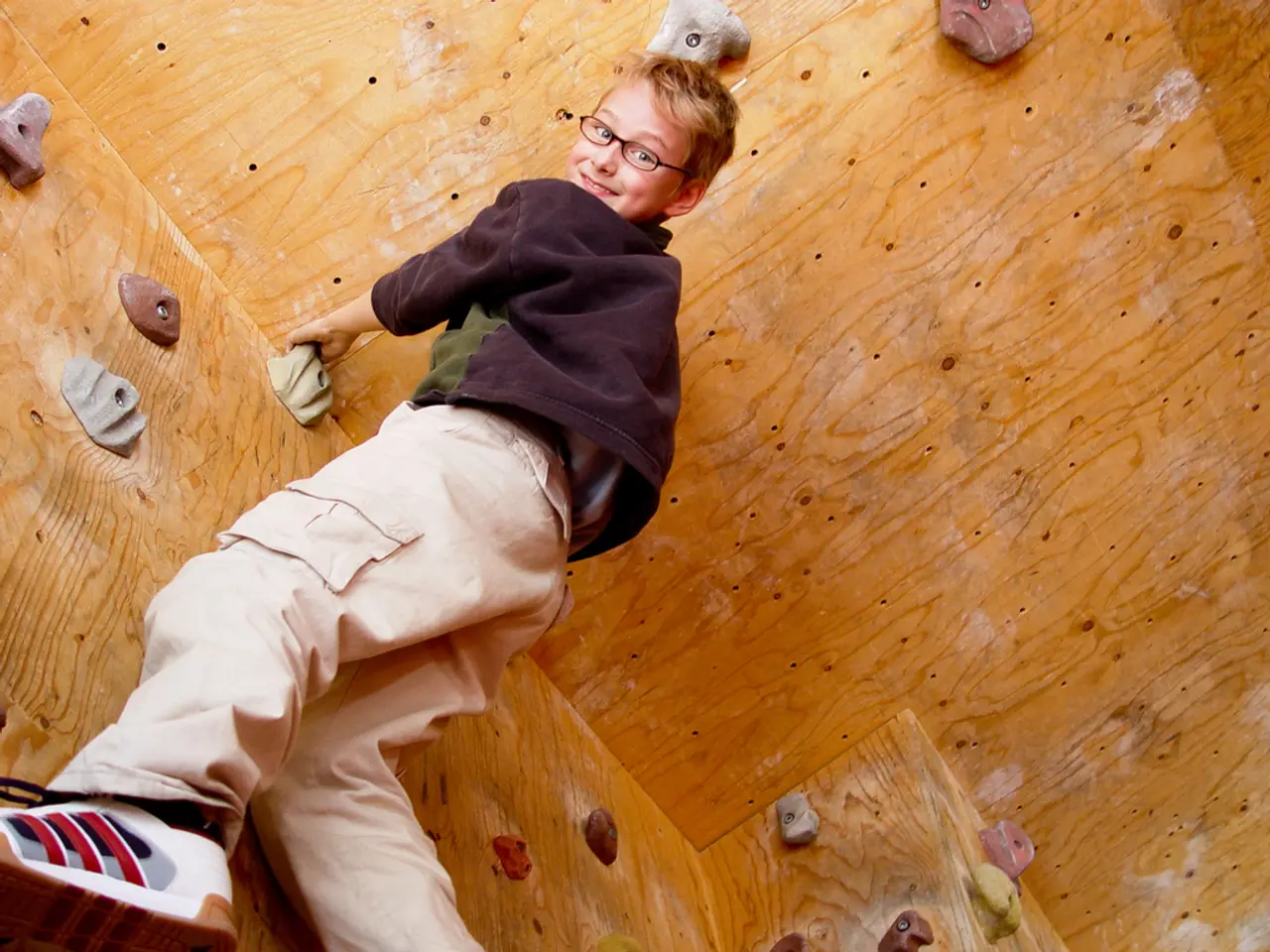Encouragement Strategies to Foster Growth and Progress in Children's Growth Journey
In the journey of raising children, praising them effectively can have a profound impact on their self-esteem, resilience, and love for learning. It's essential to shift our focus from praising fixed traits or solely outcomes to recognising genuine effort, progress, and personal growth.
Praising a child as "smart" may inadvertently promote a fixed mindset, whereas praising effort fosters a growth mindset. This approach encourages the belief that abilities can develop through effort and learning, fostering motivation and persistence in the face of challenges.
Effective praise should be specific, descriptive, and focus on the process (effort, creativity, persistence) rather than the person (talent or intelligence). For instance, instead of saying "You're so smart," it's more beneficial to say, "I saw how you kept trying different pieces until the puzzle fit. That took real patience."
Praising effort and strategies is another crucial strategy. Highlight how hard the child worked, the persistence they showed, or the different approaches they tried. For example, “You worked really hard on that problem and tried three different ways.”
Encouraging positive self-talk and affirmations is also important. Guide children to use affirmations that validate their feelings, foster courage, and promote self-compassion. Examples include, "I am brave," "I can handle difficult feelings," and "Every mistake helps me grow."
Supporting internal motivation by helping children find satisfaction in learning itself rather than relying on external rewards is vital. This helps sustain long-term engagement and resilience.
Visual and consistent reminders, such as affirmation cards or notes, can reinforce positive beliefs and growth perspectives daily. Model resilience and positive attitudes yourself, as children learn by observing how adults handle setbacks and challenges.
Tailor praise to the child’s needs and experiences, ensuring affirmations feel genuine and empowering, especially for children with anxiety or learning differences. Provide opportunities for exploration and new challenges to help children discover their strengths and build resilience through experience.
In conclusion, effective praise builds a growth mindset, self-compassion, and internal motivation by focusing on effort and learning as ongoing processes rather than fixed outcomes or static qualities. This approach nurtures confidence, resilience, and a lifelong love of learning.
- Shifting the focus from praising a child's intelligence to recognizing their effort and progress can help foster a growth mindset, which believes that abilities can develop through effort and learning.
- Incorporating affirmations that validate feelings, foster courage, and promote self-compassion, such as "I am brave," "I can handle difficult feelings," and "Every mistake helps me grow," supports positive self-talk and self-help.
- By praising a child's hard work, persistence, and different strategies, we encourage motivation and persistence in the face of challenges, emphasizing the importance of education and self-development.
- Tailoring praise to a child's individual needs, particularly in cases of anxiety or learning differences, ensures affirmations feel genuine and empowering, supporting their health-and-wellness and overall growth.




